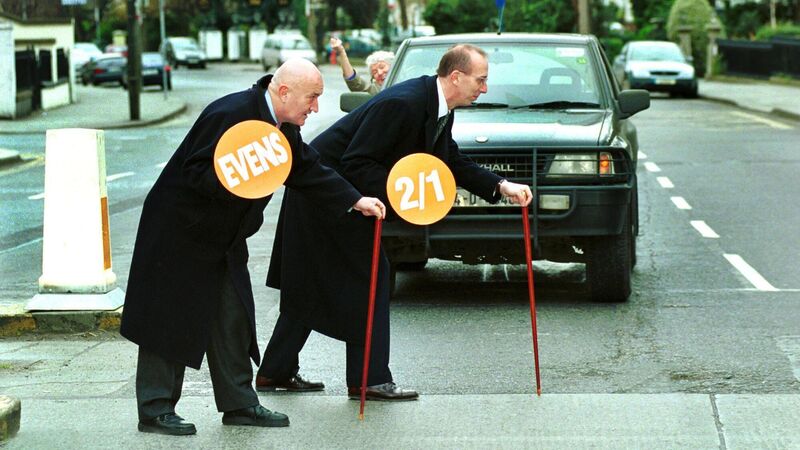John Daly: Opioids, betting, and the world of work — the best business reads of the year

Paddy Power CEO Stewart Kenny, and group finance director Ross Ivers pose for a 2002 publicity photo referring to the company's controversial ad campaign which seemed to offer odds on whether old people could cross a road safely.
— Aaron Rogan

















